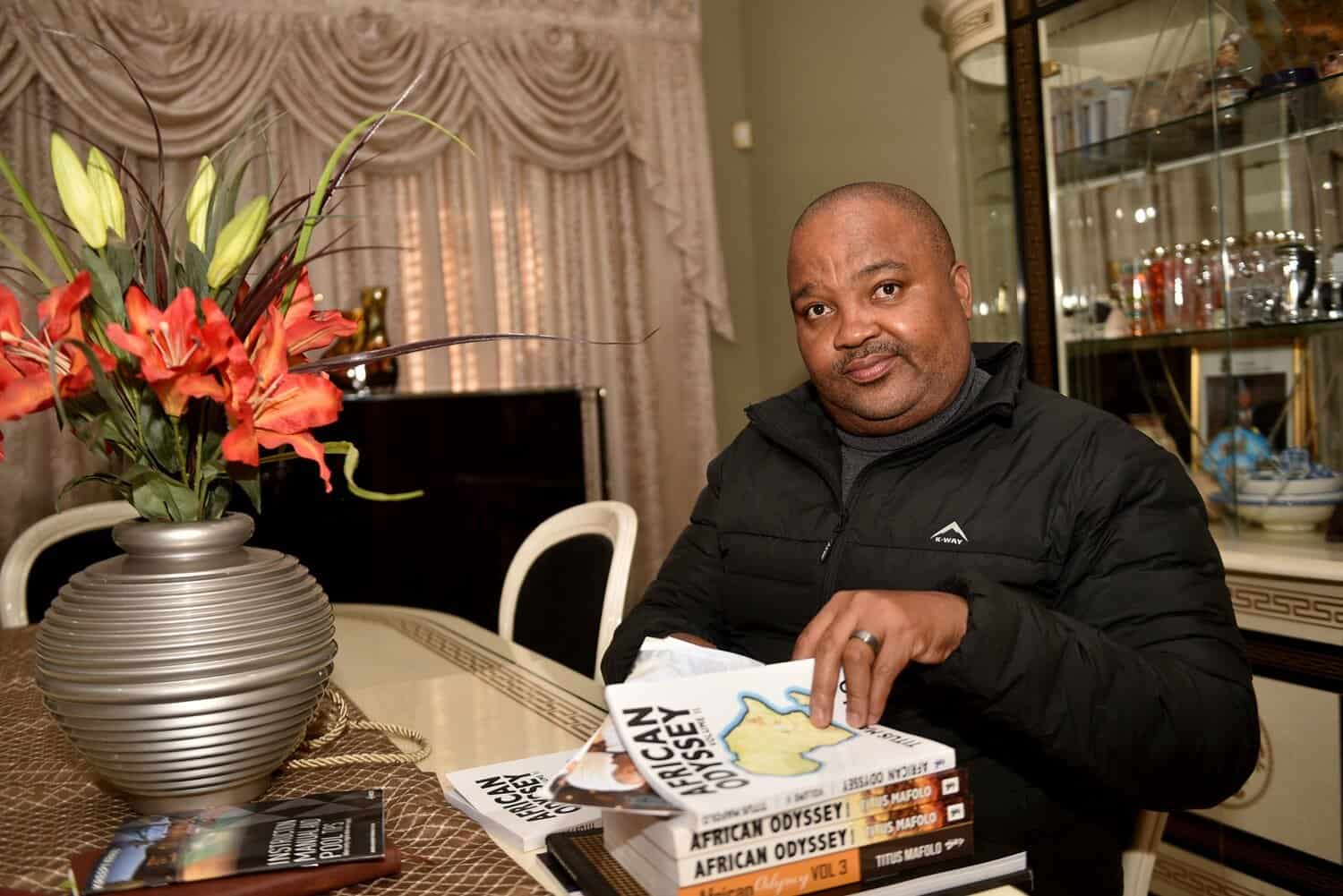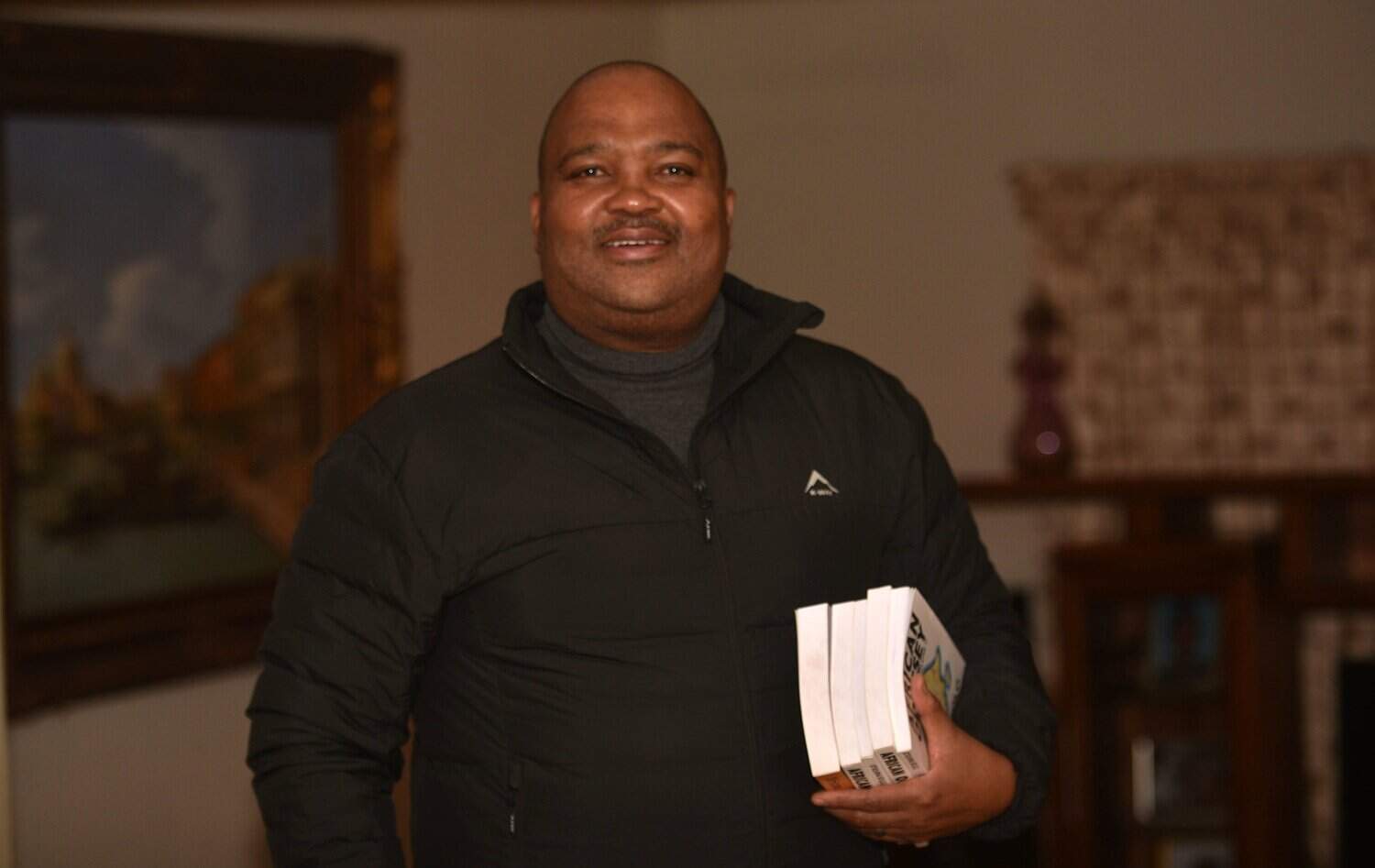Vice-chancellor of NWU dreams of a varsity that serves as centre of excellence in research

Professor Mzubanzi “Bismark” Tyobeka, vice-chancellor and principal of North-West University, has a genuine passion for Orlando Pirates football club.
He attends most of their matches in Gauteng to cheer on the Buccaneers. But he does not neglect his varsity clubs. He makes it a point not to miss watching his university soccer club at the Mafikeng campus and the rugby team at the Potchefstroom campus.
His presence serves as motivation for the players, who want to impress their father figure on the sidelines.
He is an all-around sports enthusiast and also a fan of the Springboks and the Proteas.
“I hope to regain the courage to watch Bafana Bafana as they improve. I am generally a supporter of our South African national teams,” he says.
A university of the future
Tyobeka, a father of six – five girls and a 15-year-old boy – and married to Ngeniswa Tyobeka, has a vision for the university.
He dreams of an institution that operates efficiently and serves as a centre of excellence in research, aimed at positively touching the lives of the province’s most disadvantaged residents.
He believes NWU should play a crucial role in transforming North West from one of the poorest rural provinces into a hub of economic growth, leveraging research in agriculture and mining, which are the province’s key economic sectors.
Humble beginnings
Having been born and raised in the area, he deeply understands the challenges. He was born on 4 November, 1974, at Nonce village, populated predominantly by Xhosa people and surrounded by a sea of Batswana villages, about 110km northwest of Rustenburg.
There, he began his education at Nonceba Primary School, later attending Phakamile High School. His great-grandparents had migrated from Komani, formerly Queenstown, in the Eastern Cape in search of greener pastures.
From the age 12 until high school, Tyobeka herded his maternal uncle’s cattle, which inspired him to become a farmer.
He started by buying 10 heifers on 14 January 2003, the day his fourth daughter, Siviwe, was born, while studying in the US and saving some dollars from his scholarship stipend.
Today, Tyobeka is a fully fledged livestock farmer owning about 170 head of various breeds of cattle.
A typical Xhosa man, he also keeps various breeds of goats and is aspiring to venture into crop farming.
Tyobeka began his tertiary education at the former University of Bophuthatswana, where he studied for a degree in physics, chemistry and education.
He later pursued a master’s degree in applied radiation science and technology at the same university.
He then embarked on a comprehensive educational journey at various universities in the United States, including Pennsylvania State University, where he earned a master’s degree and a PhD in nuclear engineering. He also studied at Colorado Technical University where he a master’s degree in management.
To improve his executive management skills, he completed an executive development programme at the University of Cape Town’s Graduate School of Business.
Tyobeka then completed the leadership for senior executives programme at Harvard Business School. His career began at Eskom Enterprises, where he worked in various roles, including senior physicist and chief nuclear engineering analyst, before becoming a nuclear engineer at the International Atomic Energy Agency (IAEA).

A leader
His extensive qualifications led to invitations to serve on numerous committees related to his expertise.
He has held several high positions, including chair of the NWU Council, member of the International Nuclear Safety Advisory Group, chair of the Regulatory Cooperation Forum under the IAEA and president of the 6th Review Meeting of the Joint Convention on the Safety of Spent Nuclear Fuel and Radioactive Waste Management.
Additionally, he serves as an extraordinary professor at the Centre for Applied Radiation Science and Technology and holds the same title in nuclear engineering at NWU.
Tyobeka is also chair of the Nuclear Missile and Dual-Use Committee of the Council for Non-Proliferation of Nuclear and Biological Weapons for the government and chair of the Funding Strategy Group for Universities South Africa, which represents all 26 public universities in the country.
ALSO READ: NWU eyes academic hospital as health department plans expansion
The great risk
In his most recent position as vice-chancellor and principal of NWU since June 2022, Tyobeka has returned to his alma mater to lead.
He considers himself fortunate to have taken charge of a “very stable” university, which has allowed him to concentrate on his vision for elevating the institution. He is, however, concerned about universities’ heavy reliance on Nsfas grants, which he views as risky and unsustainable.
“This is a significant risk because any instability on the Nsfas side would lead to instability at the institution,” Tyobeka says.
With North West as an agricultural province, the university must be able to fight and combat animal diseases, produce vaccines, come up with innovative farming methods and smart farming through cutting-edge research.
“If we do this, we would be able to reduce the number of livestock that perish and that would then improve the livelihoods of the farmers and ultimately impact food security in the province and in the country as a whole,” he says.
NOW READ: North-West University unveils the new name of its medical school






![More than 20 scholar transport vehicles impounded in Limpopo [VIDEO]](https://media.citizen.co.za/wp-content/uploads/2026/01/Limpopo-Transport-300x200.jpg)